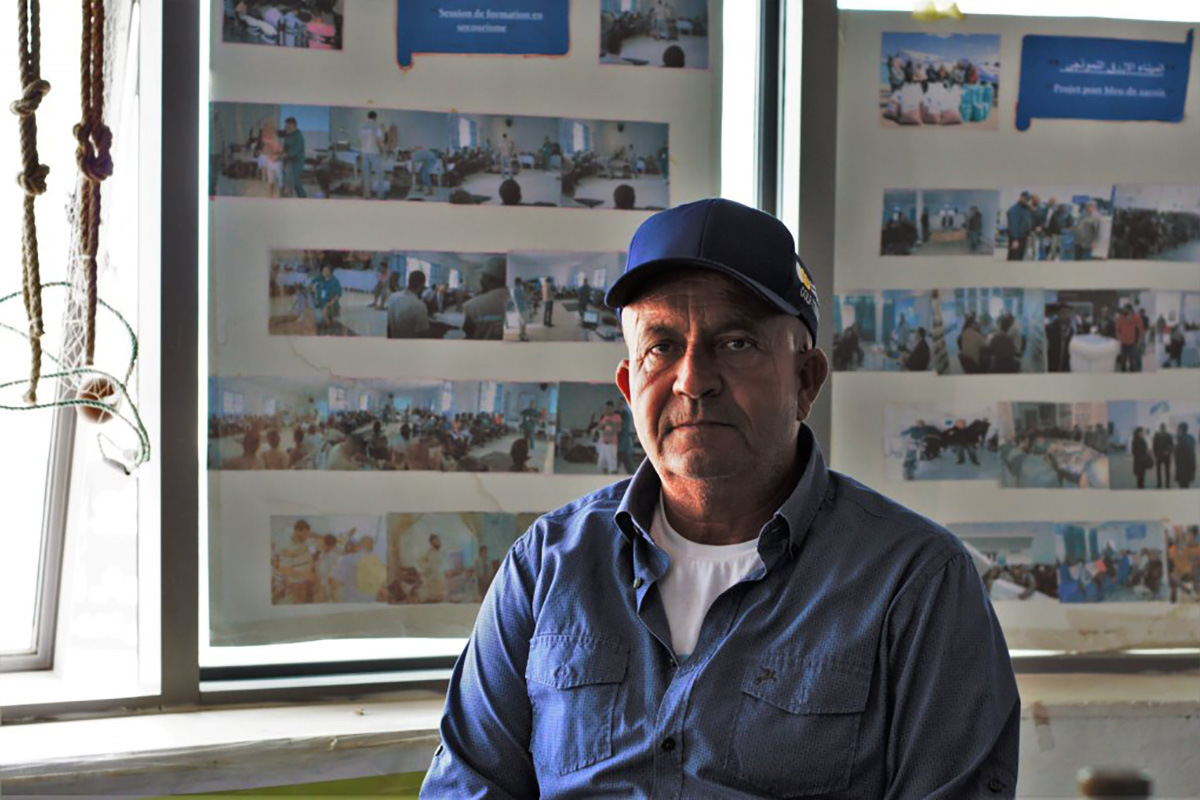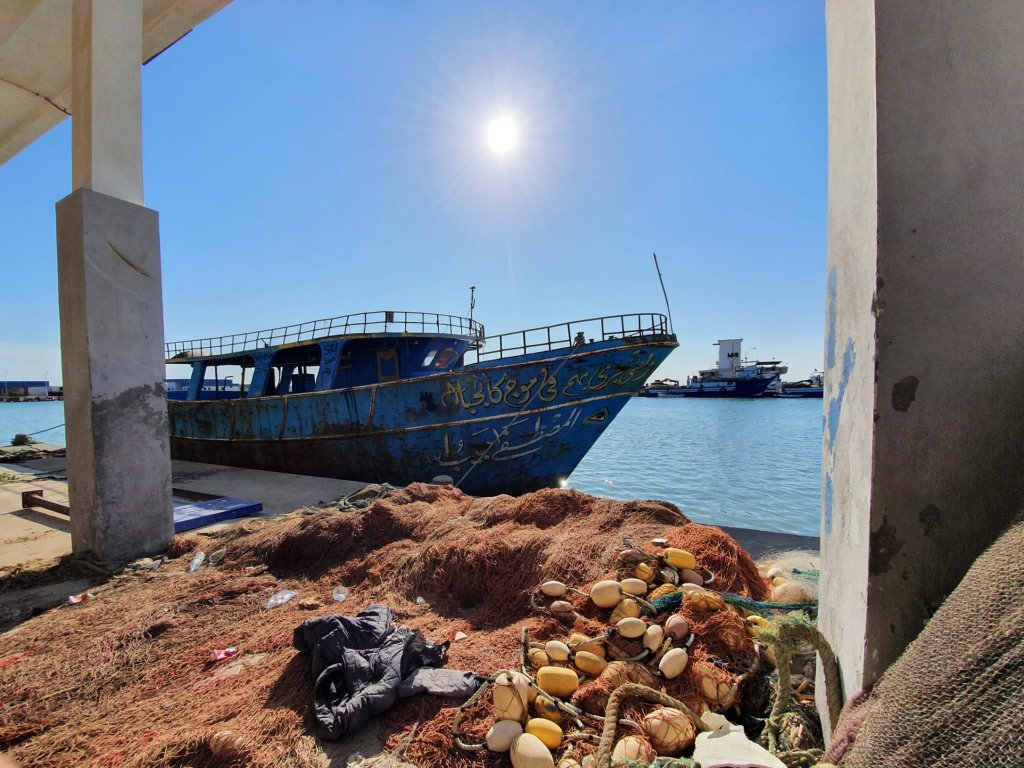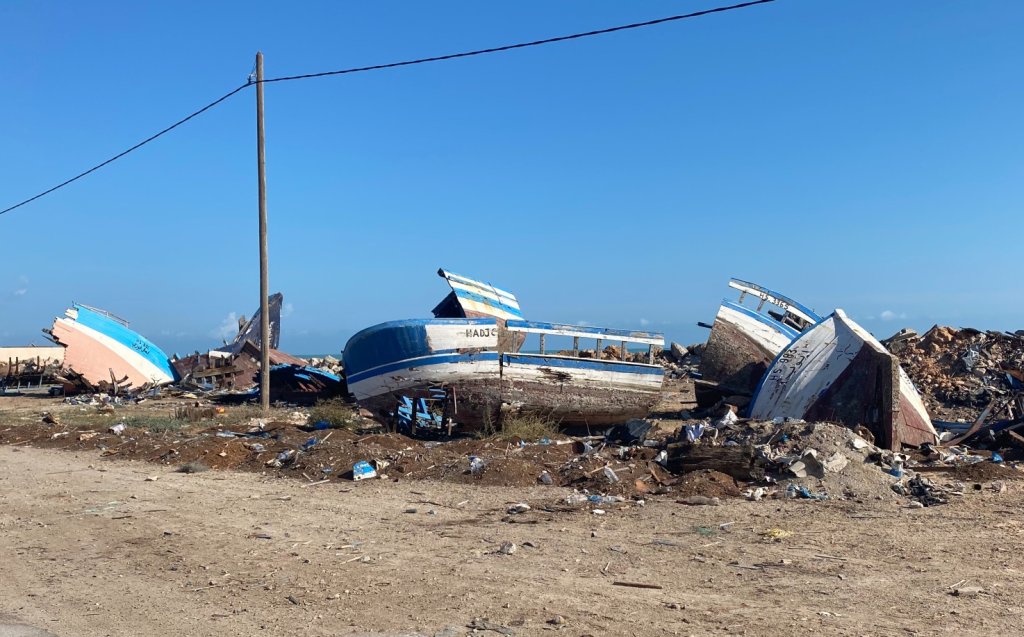
By Leslie Carretero Published on : 2021/11/15
In the south of Tunisia, fishermen regularly rescue boats full of migrants that are in distress. For them, coming across an overloaded boat has become part of their daily “routine”, just like finding dead bodies floating in the water.
Slah Eddine Mcharek is sitting on the terrace of a café in Zarzis, a small coastal town in southern Tunisia. The 53-year-old fisherman is having a morning coffee after a night spent at sea. This time, his night was just occupied with finding fish. For several days, the sea has been rough and migrants have not risked trying to cross the Mediterranean in frail boats.
Mcharek started fishing when he was 15 years old. In recent years, his sea trips have taken a different turn. Migrant boats regularly cross his path. Rescuing exiles from neighboring Libya or the Tunisian coast has become “a routine”, in his words, as he speaks with InfoMigrants.
Read more: Migrants find themselves ‘trapped’ in Tunisia, a country that can offer them nothing
In the port of Zarzis, all the fishermen say they often come across migrants at sea. “Foreigners? We see them every time we take our boats out,” says one of them. “Look at this ship, there were more than a hundred people in it,” said the man in his fifties, pointing to an imposing boat moored in the port.

From his regular cafe in downtown Zarzis, Mcharek explains that the number of “overcrowded” craft keeps increasing. “We have seen them since the early 2000s but the number has been growing in recent years. I can’t even begin to calculate the number of boats I have seen over the years, there are just too many.”.
Pressure from the Libyan coast guard
When the fishermen encounter a group of migrants in difficulty in the water, they alert the Tunisian authorities. The latter proceed with the rescue if a coast guard vessel is nearby. If not, it is up to the fishermen to assist the migrants. Some have been trained in sea rescue by Doctors Without Borders (MSF) to avoid tragedies and ensure the safety of the shipwrecked.
Read more: Zarzis, Tunisia: Overwhelmed by the unclaimed bodies of migrants
MSF did not prepare the fishermen for confrontations with the Libyan coast guard however. Tunisian authorities allow their Libyan counterparts to enter their waters to intercept migrant boats. Since a 2016 agreement with the European Union, Tripoli has been responsible for part of the search and rescue zone (SAR zone) near its coast. This has caused huge upset for Tunisian fishermen, who say they receive constant pressure from “Libyan militias.”

“They are armed and often fire in the direction of the exiles’ boats to prevent them from continuing their journey. Sometimes they also fire towards our boats,” says Mcharek. “Every time we see Libyans near the migrants, there is shooting,” adds Chamesddine Bourassine, another fisherman from Zarzis. “We have no weapons. We can’t defend ourselves against these lawless militias.”
‘We can’t let people die in front of our eyes’
Confrontations with Libyans at sea are not their only source of anxiety. The criminalization of rescue operations also worries the fishermen, who fear prosecution. “My colleagues are afraid to rescue migrants, because they fear being accused of playing the role of smugglers,” reports Mcharek.
In late 2018, six Zarzis fishermen were prosecuted for rescuing exiles off Lampedusa and towing them to the Italian island. They were finally released. But the case has left its mark on people’s memories.
Bourassine was one of the accused. Despite this negative experience, he continues to help migrants in distress. His last rescue was in early October. “We can’t let people die in front of our eyes. We don’t gain anything by doing this, it’s simply humanity,” he insists.
The Tunisians juggle as best they can between rescues, threats from neighboring coastguards, and their industry, which has become less profitable as the number of rescues at sea increases.
In addition to the loss of income, there is the trauma. Coming across a dead body floating in the water has also become part of their daily life. With the currents, many bodies from Libyan waters drift off Tunisia and wash up on the beaches of the south of the country. Some are swollen with water or in an advanced state of decomposition. “The smell hits you in the gut. It is indescribable. The worst thing is to see children,” says Mcharek, with a dark look in his eyes. “We will never forget, the images will remain forever with us.”
Leslie Carretero was reporting on location in Tunisia